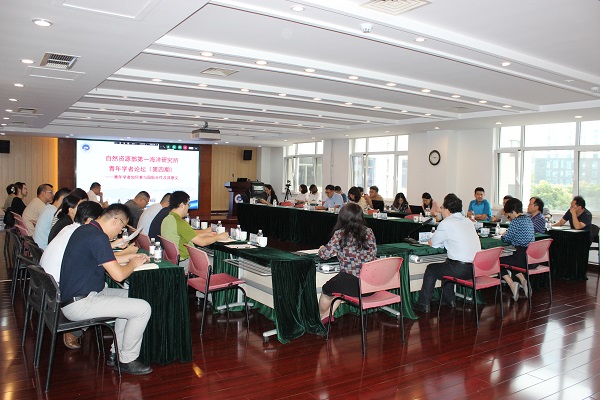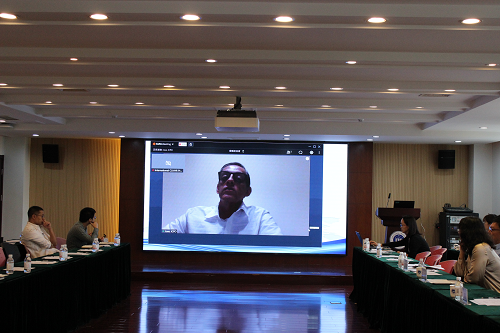ICPO supported the organization of the FIO Youth Forum

ICPO supported the organization of the FIO Youth Forum that was held on September 28, 2021 with a theme on how young scientists can participate in international cooperation and what it means to young scientists. Presentations from China SCOR, China-Korea Joint Ocean Research Center (CKJORC), China PEMSEA Center (CPC), International Project Offices of CLIVAR, Integrated Marine Biosphere Research (IMBeR), Surface Ocean – Lower Atmosphere Study (SOLAS) and UN Ocean Decade Early Career Ocean Professionals (ECOP) were made during the forum. Scientists from FIO who are already active in international cooperation also shared their experience and lessons learnt on working with different international organizations. 33 young scientists and students from FIO attended the forum. The forum has provided a great opportunity for young scientists to get an initial understanding of different international programs and organizations around them, and the benefits and opportunities of getting involved with international cooperation.
 |
 |
| Opening remark by Dr. Jose Santos, Executive Director of ICPO | CLIVAR Introduction by Ms. Jing Li, Staff Scientist of ICPO |
From the CLIVAR side, Dr. Jose Santos, Executive Director of ICPO, gave an opening remark remotely at the very beginning of the forum. He firstly expressed the appreciation for the opportunity to co-organize such an important event with FIO. He emphasized the important role that ECSs have played in the WCRP and CLIVAR communities to advance the earth system sciences, and encouraged ECSs to join the international ECS networks (e.g. YESS) and to get involved in WCRP Lighthouse Activities. Ms. Jing Li, Staff Scientist of ICPO, briefly introduced CLIVAR and how to get involved in CLIVAR activities and the Young Earth System Scientists community (YESS) (presentation).
Other important uptakes from the forum include:
- Several international organizations started involving more early career scientists as their members and established special mechanisms (e.g., YESS, IMECaN) and activities (e.g., summer schools, master programs) for ECSs;
- Low sensitive scientific cooperation can be promoted under bilateral cooperation frameworks, e.g., through the China-Korea Joint Committee on Cooperation in Marine Science and Technology;
- It is important to summarize the best practices in China and advertise them in proper ways to the international communities, e.g., the Integrated Coastal Management (ICM), coastal ecosystem restoration, etc.
- By involving in one international program, there will be potential opportunities to get involved and cooperate with other programs and organizations;
- Language barrier, poor networking skills, lack of funding resources, time limit and lack of incentives might be major challenges that hinder young scientists from getting involved in international cooperation. However, we should also recognize the great opportunities for ECS to take part in international cooperation, e.g., to be aware of the science frontiers of their research fields, to expand network, to broaden their visions, to get opportunities for training, to increase the impact of their own research and to get involved in science communications, etc.;
- ECSs are encouraged to be more proactive in participating in international cooperation by organizing ECS activities alongside big events.
ICPO will continuously support the capacity building of ECS and help enhance the connection between ECSs and senior scientists.











Add new comment